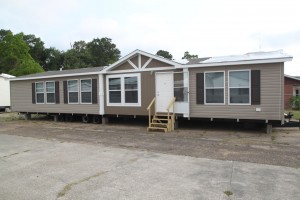It seems that the wide-ranging portfolio of Warren Buffett, investment sage and one of the world’s richest men, includes a mobile-home empire that’s coming under fair-housing scrutiny.
That’s Clayton Homes Inc., the leading maker of mobile homes, which Buffett’s Berkshire Hathaway bought in 2003. A Clayton affiliate is also the leading lender to purchasers of mobile homes.
Now comes an investigative series by the Seattle Times, the Center for Public Integrity and BuzzFeed alleging exploitative lending to minorities, not to mention racist employment practices. One of the key predatory-lending allegations is summed up by this sentence, the series’ third article published the other day:
“The company’s in-house lender, Vanderbilt Mortgage, charges minority borrowers substantially higher rates, on average than their white counter parts. In fact, federal data shows that Vanderbilt typically charges black people who make over $75,000 a year slightly more than white people who make only $35,000.”
To this and the series’ accusations launched beginning in April, Clayton issued a “categorical” denial in a press release dated Dec. 26, stating, among other things:
“(I)n 2015, for borrowers with credit scores less than 600 who chose to purchase a home-only placed on private land, and borrowed less than $50,000, the average note rate from Vanderbilt was the same for white and non-white borrowers. For borrowers with credit scores greater than 720, the note rate for non-white borrowers was 0.07 percent less than for white borrowers.”
Buffett stands by the company and told shareholders this past spring that he “makes no apologies whatsoever for Clayton’s lending terms.”
Most of the alleged depredations highlighted in the articles have taken place in the south and on native American reservations in the Southwest. Clayton does have a presence in Vermont. The company’s website lists two sales outlets in the state – in Montpelier and White River Junction – out of more than a thousand dealerships nationwide.
If the series’ allegations have legs, one might expect they’ll prompt a federal investigation or a reverse-redlining lawsuit of the sort that was lodged against Wells Fargo for preying on minority home-buyers in Baltimore and Memphis in the years leading up to the housing bust.